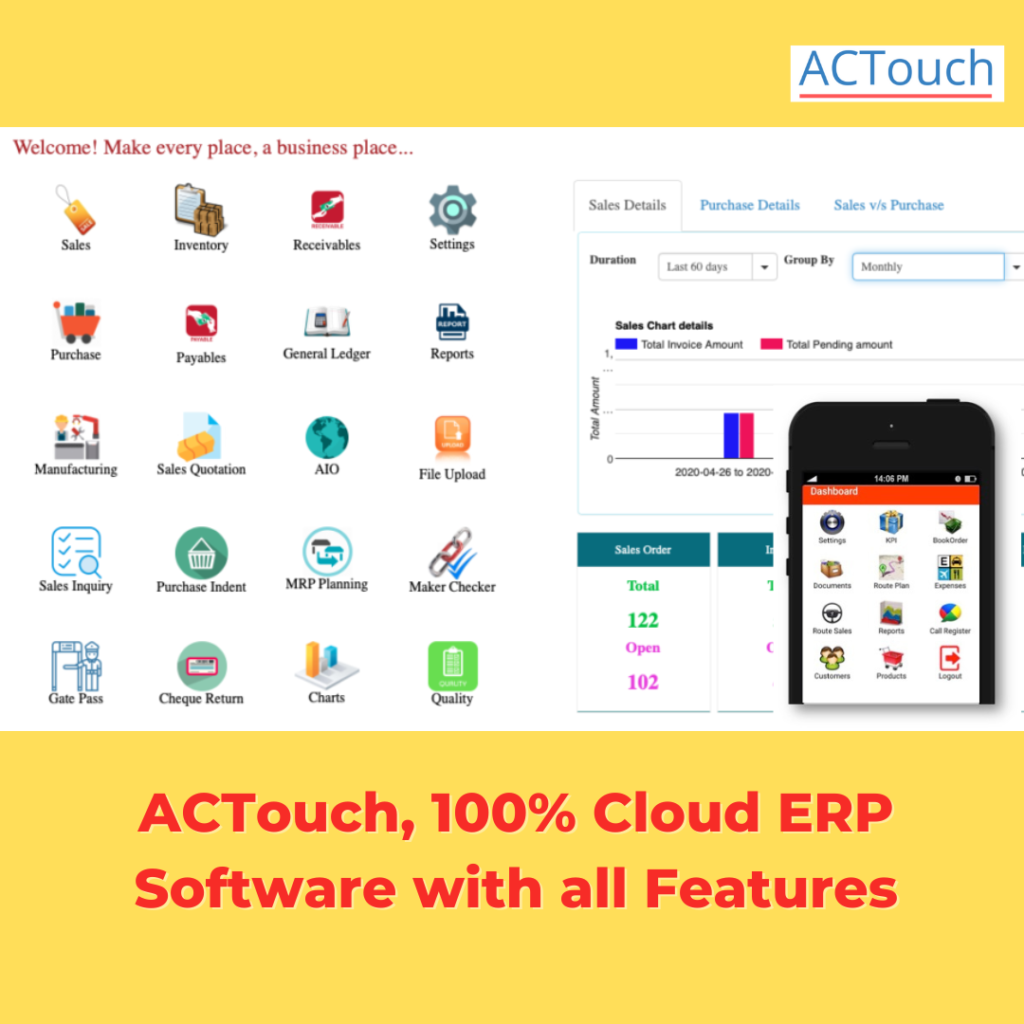Next Generation ERP: A Next-Gen ERP can transform and simplify the Business
What is Next Generation ERP?
Next Generation ERP refers to a new breed of Enterprise Resource Planning systems that have evolved to meet the demands of modern business environments. Unlike traditional ERPs, Next Gen ERPs are designed to leverage cutting-edge technologies such as artificial intelligence, the Internet of Things (IoT), and advanced analytics to offer enhanced functionalities, real-time insights, and improved decision-making capabilities. These advanced features empower businesses, especially manufacturing companies, to streamline operations, optimize resource utilization, and stay ahead in an increasingly competitive market.
Next Generation ERP systems are the future of efficient business management, particularly for SMB manufacturing companies. They leverage AI, IoT, and advanced analytics to provide real-time insights, streamline operations, and enhance decision-making. By deploying Next Gen ERPs and integrating emerging technologies, manufacturing businesses can position themselves for growth, innovation, and success in an ever-evolving business landscape.
How Today’s ERPs Are Lacking to Address Tomorrow’s Needs?
Traditional ERPs, while effective in their time, often fall short when addressing the evolving needs of today’s businesses. They may struggle to handle massive data volumes, lack real-time insights, and lack the agility required to respond to rapid market changes. As companies grow, they require more flexible and scalable solutions that integrate emerging technologies. Next Gen ERPs fill this gap by incorporating AI, IoT, and advanced analytics to provide businesses with the tools they need to succeed in the dynamic business landscape.
Advantages of Next-Gen ERP for SMB Manufacturing Companies
Small and Medium-sized Businesses (SMBs) in the manufacturing sector can reap numerous benefits from adopting Next Gen ERP:
- Real-time Insights: Next Gen ERPs offer real-time data analysis, allowing manufacturers to make informed decisions promptly. For instance, they can adjust production schedules based on changing demand patterns, minimizing waste and optimizing production efficiency.
- Enhanced Efficiency: With features like automated workflows and predictive analytics, Next Gen ERPs enable manufacturers to streamline operations and reduce manual effort. This leads to higher productivity and lower operational costs.
- Scalability: SMBs that are growing need systems that can scale with them. Next Gen ERPs can accommodate increased data volumes, more complex processes, and expanded product lines, ensuring businesses can continue to thrive.
- Advanced Reporting: These ERPs offer advanced reporting capabilities, presenting key performance indicators (KPIs) in visually appealing formats. This aids in quick decision-making and allows manufacturers to identify trends and areas for improvement.
Why Manufacturing Companies Should Think of Deploying Next Generation ERP?
Manufacturing companies should consider deploying Next Gen ERP systems to stay competitive and future-ready. These systems not only address current operational needs but also equip businesses with the capabilities required to adapt to emerging market trends and technological advancements. By embracing Next Gen ERP, manufacturing companies can enhance operational efficiency, improve customer satisfaction, and foster growth in a rapidly changing business landscape.
How Integrating Artificial Intelligence Helps ERPs?
Integrating Artificial Intelligence (AI) with ERPs takes business operations to the next level. AI-powered Next Gen ERPs can automate routine tasks, predict demand patterns, optimize supply chain processes, and even suggest optimal production schedules. For example, AI can analyze historical sales data to forecast future demand, helping manufacturers allocate resources more effectively and reduce excess inventory.
|
How IoT and IIoT Helps Next-Gen ERP?
The Internet of Things (IoT) and Industrial Internet of Things (IIoT) play a pivotal role in enhancing Next Gen ERP capabilities. By connecting devices, equipment, and even products, IoT and IIoT provide real-time data streams that ERP systems can use to monitor equipment health, track inventory in real time, and collect data for predictive maintenance. For instance, sensors in manufacturing equipment can communicate with the ERP, triggering maintenance alerts before a breakdown occurs, minimizing downtime.
How Building a ChatGPT, a General AI Features with ERP Can Help SMB Manufacturing Companies?
Integrating ChatGPT features with ERP systems can revolutionize how SMB manufacturing companies interact with their software. ChatGPT, powered by AI, can act as a virtual assistant, enabling users to interact with the ERP through natural language. This enhances user experience by making it easier to access information, generate reports, and even troubleshoot issues.
For example, a manufacturing manager could ask the ChatGPT-powered system to provide real-time production data, generate a production report, or suggest optimal production schedules based on current demand trends.

